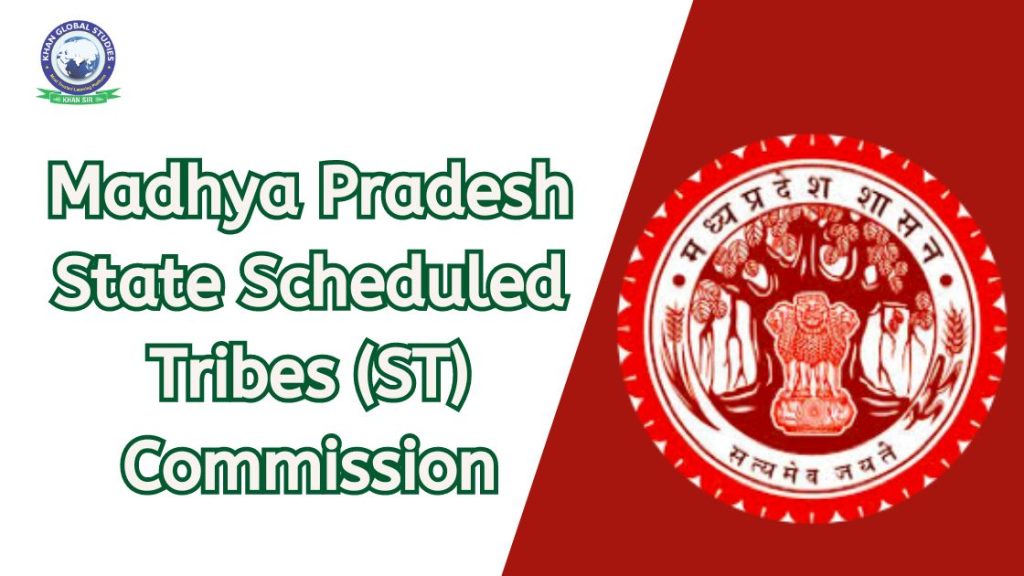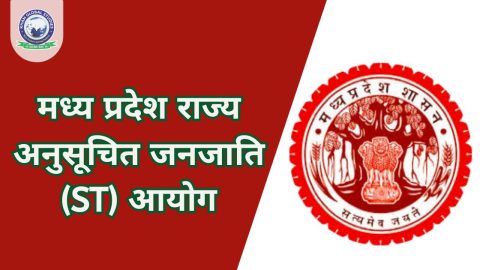The Madhya Pradesh State Scheduled Tribes Commission is a constitutional body established by the Government of Madhya Pradesh to protect the welfare and rights of the Scheduled Tribe communities. This Commission was constituted under Article 214 (3) of the Indian Constitution.
The Madhya Pradesh State Scheduled Tribes Commission is an important institution aimed at protecting the rights and interests of the Scheduled Tribes (ST) in the state. This detailed article traces the history, functions, achievements and financial aspects of the Commission.
Historical Background
The Madhya Pradesh State Scheduled Tribes Commission was established to address the specific needs and challenges of the ST communities. Over the years it has played a vital role in advocating for their rights and ensuring the implementation of relevant policies.
Objectives
The main objective of the Commission is to promote the socio-economic development of the ST communities by advising the government on policy matters, monitoring welfare schemes and resolving complaints related to discrimination and injustice.
Functions of the Commission
- To investigate cases of discrimination and atrocities against the Scheduled Tribe communities.
- To review the implementation of government schemes and policies formulated for the Scheduled Tribe population.
- Advising the Government on the protection of the rights and interests of the Scheduled Tribes.
- Promoting programmes and initiatives for the upliftment of the Scheduled Tribes.
- Providing legal aid to victims of exploitation among the Scheduled Tribes.
Achievements of the Commission
The Madhya Pradesh State Scheduled Tribes Commission has achieved significant progress in ensuring the welfare of the Scheduled Tribes and upholding their rights. Some of the major achievements include:
- Increased awareness and reporting of discrimination and atrocities faced by the Scheduled Tribes.
- Better implementation of Government schemes and policies specifically formulated for the Scheduled Tribes.
- Enactment of strong laws to protect the rights and interests of the Scheduled Tribes.
- Initiation of various programmes and schemes aimed at the upliftment of the Scheduled Tribes.
- Increased legal aid to victims of exploitation within the Scheduled Tribes.
Commission Structure
- Organizational Hierarchy: The Commission is structured under the leadership of a Chairperson who is supported by members and the Secretariat. Each member has specific responsibilities to ensure that the Commission functions efficiently.
- Key Members and their Roles: Key Members include the Chairperson, Vice-Chairperson and other appointed members, each of whom brings expertise. Their roles range from policy advice to grievance redressal.
Key Initiatives and Programs
- Educational Programs: Educational programs are designed to improve literacy rates and educational attainment among ST individuals. Scholarships and special coaching classes are part of these initiatives.
- Employment Initiatives: Employment programs focus on increasing employment opportunities for ST individuals through skill development and job placement services.
- Health and Wellness Schemes: Health schemes ensure access to medical facilities and promote overall well-being among ST communities.
Challenges Faced by the Commission
- Operational Constraints: The Commission faces several operational challenges, including bureaucratic delays and resistance to change within some government departments.
- Resource Constraints: Limited financial and human resources can hinder the effective implementation of programs and schemes.
Budget Allocations
The Madhya Pradesh State Commission for Scheduled Tribes receives a specified budget to perform its functions effectively. In the financial year 2022-23, the Commission was allocated a budget of ₹19,995,000/-.
Impact on Tribal Development
The Madhya Pradesh State Commission for Scheduled Tribes has had a profound impact on the socio-economic development of the ST community. By focusing on key areas such as education, employment, health and well-being, the Commission has brought about significant improvements in the living standards of many ST individuals.
- Educational Empowerment: Educational programmes initiated by the Commission have led to a significant increase in the literacy rate among the ST community. Scholarships, special coaching classes and vocational training programmes have enabled many young ST individuals to pursue higher education and professional careers. This has not only improved their socio-economic status but also empowered them to contribute more effectively to the development of their communities.
- Economic Upliftment: Employment initiatives have provided ST individuals with the necessary skills and opportunities to secure jobs in various sectors. The focus on skill development and job placement services has opened up new avenues for economic advancement, reducing dependence on traditional and often unstable sources of income.
- Health and Well-being Enhancement: Health schemes implemented by the Commission have ensured that ST communities have better access to medical facilities. Regular health camps, awareness programmes and health insurance schemes have improved the overall health and well-being of the ST population. Additionally, welfare schemes aimed at providing housing, sanitation and clean drinking water have significantly improved living conditions in ST-dominated areas.
Challenges and Way Forward
Despite its achievements, the Madhya Pradesh State Commission for Scheduled Tribes continues to face several challenges that need to be addressed to enhance its effectiveness.
- Operational and Resource Constraints: The Commission often faces bureaucratic hurdles that delay the implementation of its programmes. Additionally, limited financial and human resources can limit the scope and reach of its initiatives. To overcome these constraints, streamlined processes and increased budget allocations are needed to ensure that the Commission can work more efficiently.
- Awareness and Participation: One of the ongoing challenges is to increase awareness about the Commission’s programmes and ensure active participation from the ST community. Efforts must be made to increase outreach and engage more effectively with the community. This includes leveraging technology and digital platforms to disseminate information and collect feedback.
- Strengthening Grievance Redressal Mechanism: It is necessary to improve the grievance redressal mechanism to ensure that grievances are resolved promptly and effectively. This includes not only establishing more accessible platforms for filing complaints but also ensuring that there is a transparent and accountable process for resolving them.
- Collaboration and Partnerships: The Commission’s capabilities can be enhanced by collaborating with other government and non-government organisations. Partnerships can provide additional resources, expertise and innovative approaches to address the multifaceted challenges faced by the ST community.
Conclusion
The Madhya Pradesh State Commission for Scheduled Tribes has made significant progress in promoting the welfare and development of the ST community. Through its various initiatives, it has addressed critical issues related to education, employment, health and well-being. However, to further enhance its impact, the Commission must overcome operational challenges, enhance community engagement and strengthen its grievance redressal mechanisms. By doing so, it can play a vital role in uplifting the socio-economic status of the Scheduled Tribes in Madhya Pradesh.
FAQs
Question: What specific programs does the Commission offer for educational development?Answer: The Commission offers scholarships, special coaching classes, and vocational training programs to improve literacy and educational attainment among the ST community.
Question: How does the Commission support employment for ST individuals?
Answer: Employment support is provided through skill development programs and job placement services aimed at enhancing job opportunities for ST individuals in various sectors.
Question: What health schemes are available through the Commission?
Answer: Health schemes include regular health camps, awareness programs, and health insurance schemes to ensure better access to medical facilities and improve overall health.
Question: What are the main challenges faced by the Commission?
Answer: The main challenges include operational hurdles, resource constraints, raising awareness, and ensuring active community participation.
Question: How can the Commission improve its grievance redressal mechanism?
Answer: Improvements can be made by setting up more accessible platforms for filing complaints, ensuring a transparent process for resolving them, and leveraging technology for efficiency.





